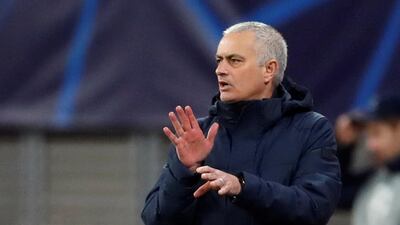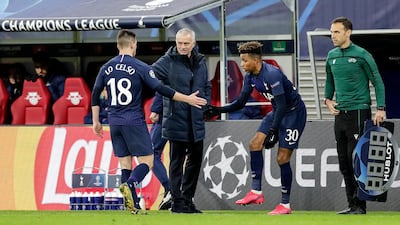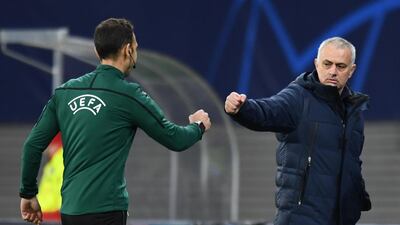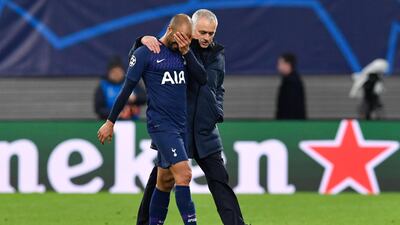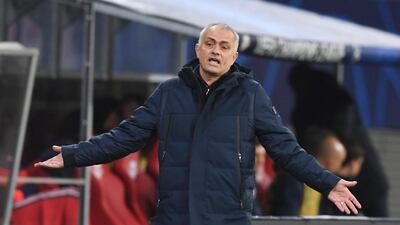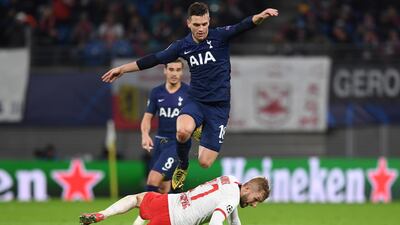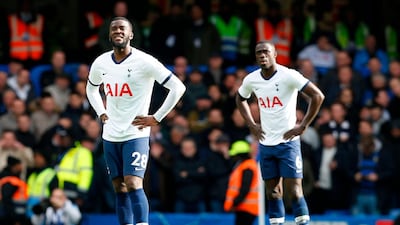It was a month ago, but it counts as more innocent times. After Tottenham lost to RB Leipzig in February, Jose Mourinho said he “would love it to be July 1.” Those sentiments would probably be shared by millions now, albeit for reasons entirely unrelated to the fitness of Harry Kane or Heung-Min Son.
Football’s extended hiatus may yet work to Spurs’ benefit. Assuming football resumes, their injured forwards may yet be available for some of the run-in. And yet the impasse affords time to reflect.
Tottenham’s decision to appoint Mourinho in November could seem a case of a club blinded by stardust, in thrall to its own new-found pulling power. And yet, apart from the strange and probably costly choice to give a manager who never lasts three-and-a-half years anywhere and whose reigns seem to unravel ever sooner a contract until 2023, it looked largely a short-term punt.
Tottenham’s 2018-19 Champions League run earned them £62.6 million (Dh278m) in prize money alone; gate receipts and commercial and sponsorship benefits swelled that. Paying off the cost of their new stadium would be altogether easier with greater income at elite level.
Mourinho has turned 14th place, albeit a deceptively low position in a congested division that offered easy scope for improvement, into eighth. But Tottenham have gone six games without a win, the worst run of his career, beating tame exits from the FA Cup and the Champions League.
There will be no silverware this season. If, one way or another, there is no Champions League qualification, the gamble will have failed.
They must want to rewind, reset, and perhaps avoid repeating mistakes. Mourinho’s honeymoon period lasted less than a month. There was an element of fortune to his two finest wins, away at Wolves and at home to Manchester City. The reality his side have a mere three clean sheets in 26 games highlights the lack of ‘Mourinho masterclasses,’ examples of tactical excellence and defensive organisation. A short-termist manager has not had a short-term impact.
Injuries are a factor, but Mourinho has reacted as though his Spurs are the only team to suffer them, as though oblivious to the reality Mauricio Pochettino’s Tottenham reached the Champions League final without the sidelined Harry Kane and Harry Winks.
He has spent his time describing goalscoring attacking players as “not a striker.” He seemed passive and defeatist, rather than a £15 million-a-year manager with a track record of trophies that suggested he is equipped to deal with difficulties.
An excuse culture has been allied with a blame culture. His treatment of his preferred scapegoat Tanguy Ndombele has apparently irritated some others in the squad. The now familiar pattern of falling out with players ever quicker, of negativity replacing positivity, has come quicker.
If Mourinho’s reign underlines that there is no quick fix at Spurs, that a major rebuild is required, he has highlighted flaws, rather than camouflaged them, in a spell when only Giovani Lo Celso has really excelled.
But perhaps Spurs have looked worse than they actually are as Mourinho has kept losing to younger managers, his side looking tactically incoherent compared to those of Julian Nagelsmann, Nuno Espirito Santo and Frank Lampard.
If he has been stripped of his aura, reputations can be damaged. Damien Comolli, Spurs’ former director of football, recently described Daniel Levy as one of the top five executives working in any sport. Whether or not that is true in the broader context, the decision to choose Mourinho defines the discussion now. And it feels an error.
